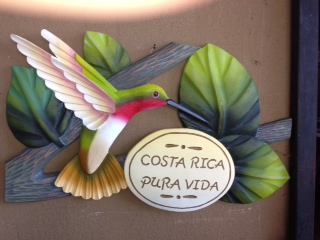My family and I love to travel, especially internationally. But traveling with a family of six can be cost prohibitive. Fortunately, we found a great rate going to Costa Rica, and we’ve just returned from our trip.
Pura vida is a characteristic Costa Rican phrase. It literally means pure life, however the phrase can be used in many ways: it can be used both as a greeting or a farewell, as an answer expressing that things are going well, or as a way of giving thanks.
Working in the global mobility industry for over 16 years has given me a different perspective about traveling. I know reading about a location is not the same as being there. But Living Abroad has a great detailed report on Costa Rica that gave me the information I needed.
Here are the best tips I learned before our vacation:
1. Learn about the history.
The people of Costa Rica, which was colonized by Columbus, are mostly Spanish or of Spanish/mixed descent. Early explorers brought diseases with them that killed most of the indigenous people. While Costa Rica is a predominantly Catholic country, many other religious groups have staked their claims and converted about 25% of the population.
2. Understand the culture.
The people are extremely friendly in Costa Rica and many speak English. Since ecotourism accounts for much of their economy, the service is excellent, and they go out of their way to make foreigners feel comfortable. Costa Rica exports bananas, pineapple, coffee, sugar, and rice to both North and South America, which also fuels the economy.
3. Find out about educational beliefs.
In 1948, president José Figueres Ferrer disbanded the Costa Rican army and used the money from the military to build schools and make education, culture and security a priority. Every small village has some type of school and the literacy rate is 92%. Education is mandatory, which attracts neighboring Nicaraguans.
4. Read up on tipping and currency exchange.
Costa Rica accepts US Dollars, but will give you change in Colones, the native currency, which is about 500 Colones to 1 US Dollar. Tipping is expected by drivers and tour guides, but most restaurants include the tax of 13% plus 10% gratuity in the final bill.
5. Research recreational activities.
If you are going for business, what activities are there to do on the weekend? Since we were there for vacation, the 26 national parks (wow), coasts on both the Atlantic and Pacific, volcanoes and rivers offered unlimited sources for fun and enjoyment.
6. What will I eat?
Loving food as much as I do, I wanted to learn about the local cuisine. Casados are what the locals eat for lunch, dinner and a variation of this meal for breakfast. A casado is rice, beans and your choice of meat with some greens and fried plantains. Delicious! Tropical fruits of all types abound and they are served fresh and perfectly ripe.
7. Memorize some phrases in the native language.
You hear this all the time, but it really does make a difference when you try to communicate in the native tongue. Although I learned Spanish in high school, a few days in the country was enough to trigger my memory. One hotel clerk even said my accent was very good!
As we all travel around the world, it’s important to remember we are ambassadors of our company and country.
Pura Vida, as they say in Costa Rica!
*************************************************
Brush up on your country knowledge before you go, with Living Abroad’s destination reports on 177 locations. We are happy to share a free trial on a report of your choice.
Just click on the Free Trial Button to the right. It’s that easy!


